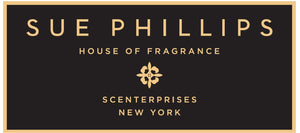It’s All About The Ingredients
Naturals and Synthetics
Consumers are more interested in knowing which ingredients they prefer in their fragrances and are constantly researching on the internet. They want to know the details, the strengths, and the weaknesses of the ingredients, whether they are organic, natural or synthetic., while still wanting to be transported by a heavenly aroma.
With all the niche fragrances being created, perfumes are formulated with single note ingredients like OUD leading the way. ROSE is also making a return, not your grandmother’s Rose, but a more modern exotic direction.
The cost of essential oils from natural ingredients is a huge factor in the art of perfumery. Pricey ingredients such as Bulgarian Rose Oil which accounts for 70% of the world’s rose oil, takes about 10,000 pounds of rose petals to distill one pound of the highly coveted rose oil. because of the high price of rose oil, some rose producers ‘skirt’ the system by diluting the oil with geranium or other essential oils, which contain the same chemical as rose oil. Some of these so called ‘rose oils’ are 90% geranium to 10% rose fragrances. As a result of the expense, some perfumers create a synthetic version which is much less expensive. If there are droughts or floods, the production of natural ingredients is compromised and therefore identical molecules are created to replicate the original formulas - sometimes with success, other times noticeably different.
OUD (pronounced OODH) from the Agar tree grown in Morocco and is exorbitant as the wood has to become infected with a type of mold which causes the wood to produce oud, a dark, extremely fragrant resin. Apparently, only 2% of Agar Trees produce oud, making it incredibly rare and expensive. It is difficult to harvest, and the oud oil is sometimes referred to as ‘liquid gold’. So perfumers formulate synthetic scent molecules combine them with traditional essential oils derived from flowers, roots, fruit, wood. The demand for natural sandalwood from India and Vanilla from Madagascar is greater than its potential supply and require thousands of pounds to yield a pound of essential oil. If they are not able to harvest these ingredients it impacts production of these precious oils. that is why many perfumes have changed over the years and perfumers replicate the natural ingredients with synthetic molecules.
Consumers have a preference for ‘natural’ ingredients as it goes along with wanting a healthy life-style, eating organic foods and wearing natural fabrics. While some synthetic ingredients are expensive, ingredient firms are introducing new molecules that are either derived from natural or identical to natural compounds, but many molecules continue to come from petroleum. Naturals is arguably today’s biggest trend in ingredients for fine fragrances.
Some reasons why synthetics are used
Because of exorbitant costs and stringent FDA & IFRA rules prohibiting the use of certain animal products such as ambergris, musk, civet, and castroleum many of these ‘ancient’ ingredients are manufactured synthetically or ‘aromatically’. When you visit a perfume lab you see thousands of bottles, each one containing a mysterious potion that, when combined with others, can create the most extraordinary concoction...which becomes a perfume or fragrance when combined with alcohol.
The derivation of all fragrance ingredients come from nature, and now due to sophisticated ‘head space’ technology technique developed in 1980s, perfumers can analyze the odor compounds present in the air surrounding various objects - such as plants, flowers, foods and even fabrics. After the data is analyzed, the scents can then be recreated by a perfumers.
Through this technology, Perfumers can pretty much duplicate any aroma! If you ever want to know what the aroma of freshly laundered linen actually smells like, it is possible to find out!
In a world increasingly focused on transparency and quality, Sue Phillips Fragrances stands apart. Our commitment to using only the finest ingredients is unwavering. With 18 meticulously crafted blends at your disposal, you have the power to curate a fragrance that perfectly mirrors your unique essence. We understand the growing interest in the intricacies of fragrance composition. Whether you lean towards the allure of natural ingredients or the innovation of synthetics, our perfumes are a testament to the artistry of perfumery. We invite you to embark on a sensory journey, where heavenly aromas and unparalleled quality converge to create a fragrance experience like no other because...
’Perfume is the Signature of Your Soul!’
Scentfully,
Sue Phillips
